Canadians are well stocked with food as many are concerned about food availability and rising prices
March 27, 2020

Abacus Data Bulletins are short analyses of public opinion data we collect. For more information or media interviews, contact David Coletto.
As COVID-19 causes mass disruption to the labour force, worried Canadians’ minds turn to the basic products they need to live out what may come to be a uniquely difficult period in their lives.
In the past week, families flocked to grocery stores as a result of the COVID-19 coverage. Few – 1 in 10 had not yet shopped while coverage of the crisis and signals from the government were significantly ramping up in severity. Those with financial capacity and higher incomes were more likely to go to others, but households across the country and income spectrum were busy preparing.

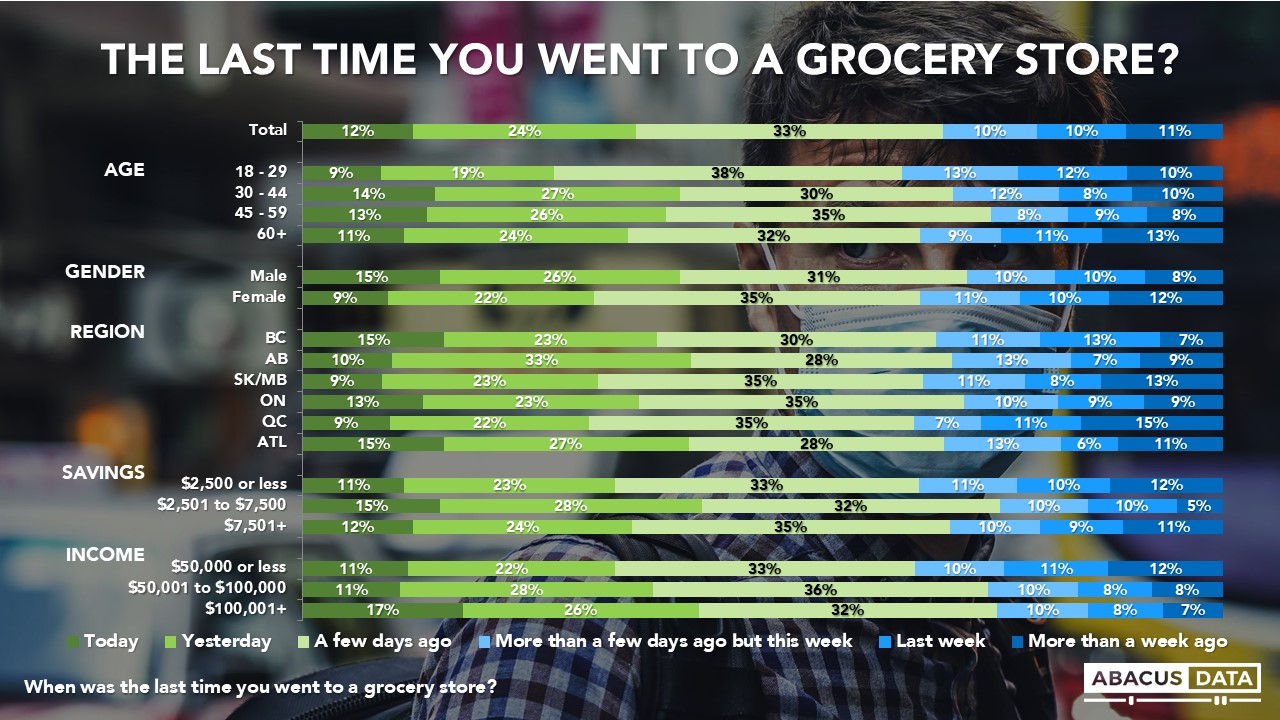
The affordability anxiety brought on by this crisis is not just driven by lost income, but also by the perceived impact of COVID-19 on the affordability of household necessities.
About 2 in 3 Canadians are concerned COVID-19 will impact the price of food and household goods – even higher among lower-income households.

Despite assurance from several levels of government that all is well with the supply chain, about 2 in 3 Canadians are concerned COVID-19 will impact the availability of food or household products.
The anxiety is particularly acute with household paper and cleaning products, with around 7 in 10 believing they will be now harder to get.
Many Canadians worry about ease of access to fresh produce and meat as a result of COVID-19, while around half of Canadians are concerned about frozen and canned foods. Few are worried about beer or wine availability.
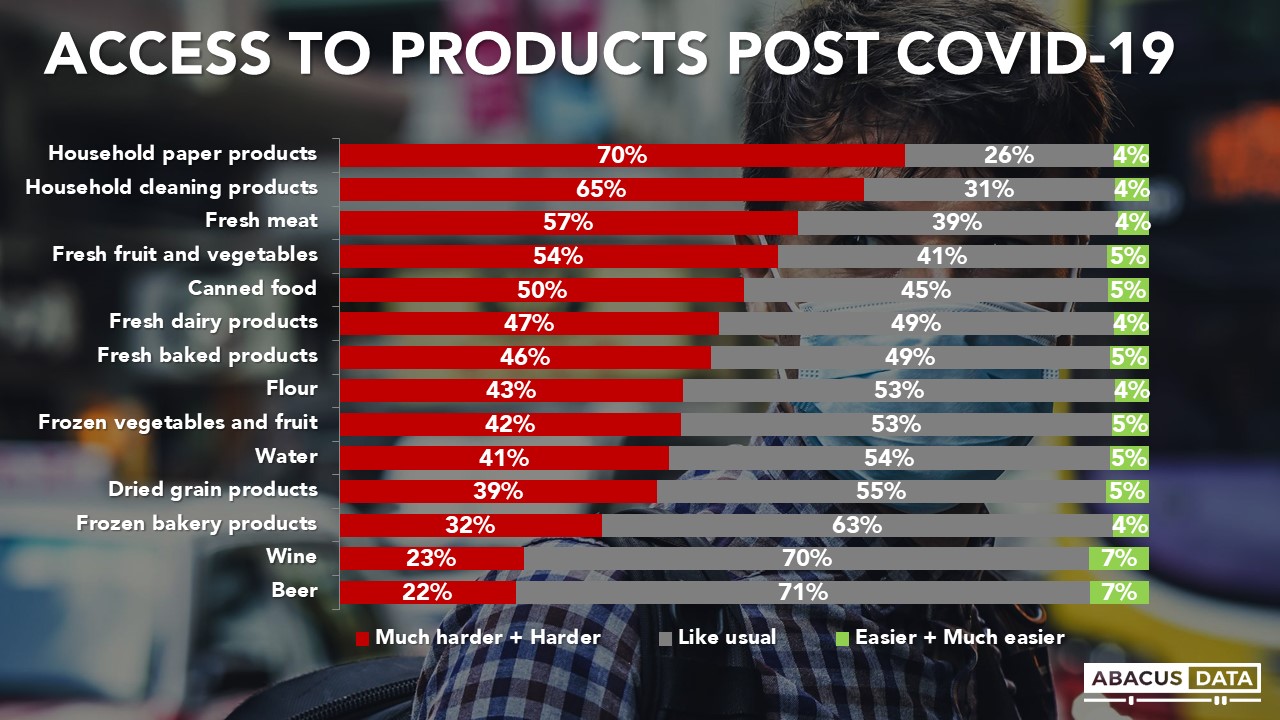
CANADIANS SEEING EMPTY SHELVES AND STOCKING UP
This concern is based on the experiences Canadians have going to stores and seeing empty shelves. 77% of Canadians say when they went for groceries, the shelves were emptier than usual. This has been particularly acute in Alberta and BC, where just under half of the shoppers noted much fewer products on shelves.


And so, it should come as no surprise that Canadian households are stocking up because of the uncertainty caused by the COVID-19 epidemic. They are particularly stocking on exactly those products they expect to be scarce – household paper, cleaning products, canned foods, and fresh meat and vegetables.
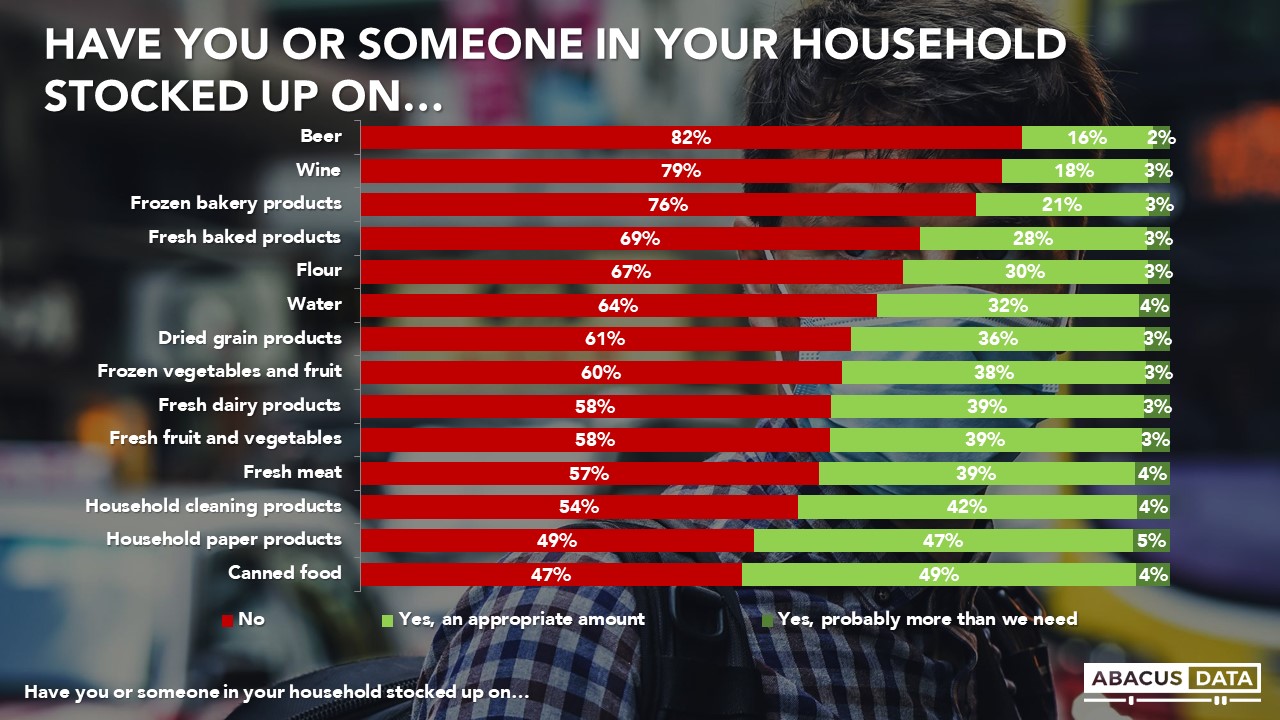
HOW LONG WILL THEY LAST?
How prepared when it comes to food are households if they are required to quarantine in their homes? A third of Canadian households believe they can manage 2+ weeks while still eating as usual based on their existing stores, with one in ten reporting the ability to survive more than a month. Most are somewhere in the 5-14 day range, considering the food they have in their home right now.
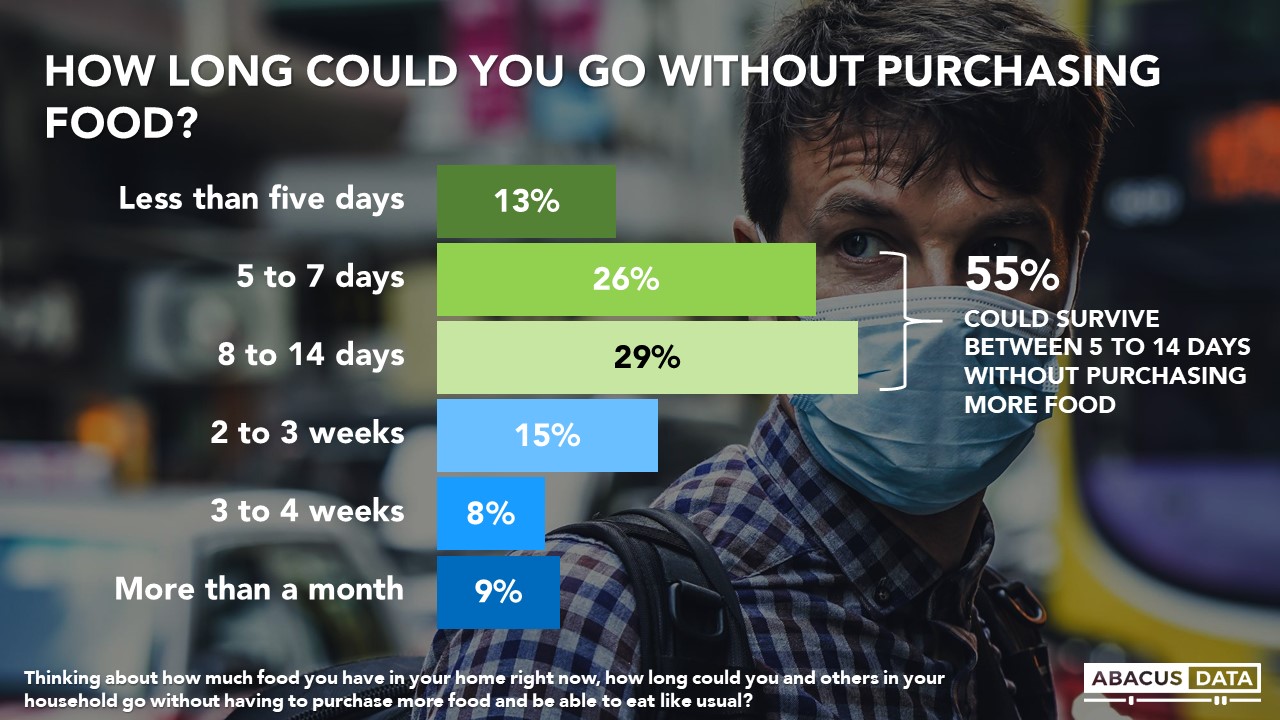
37% of Canadians could only survive fewer than 7 days, however, this number shoots up to half of households with lower incomes and fewer savings.
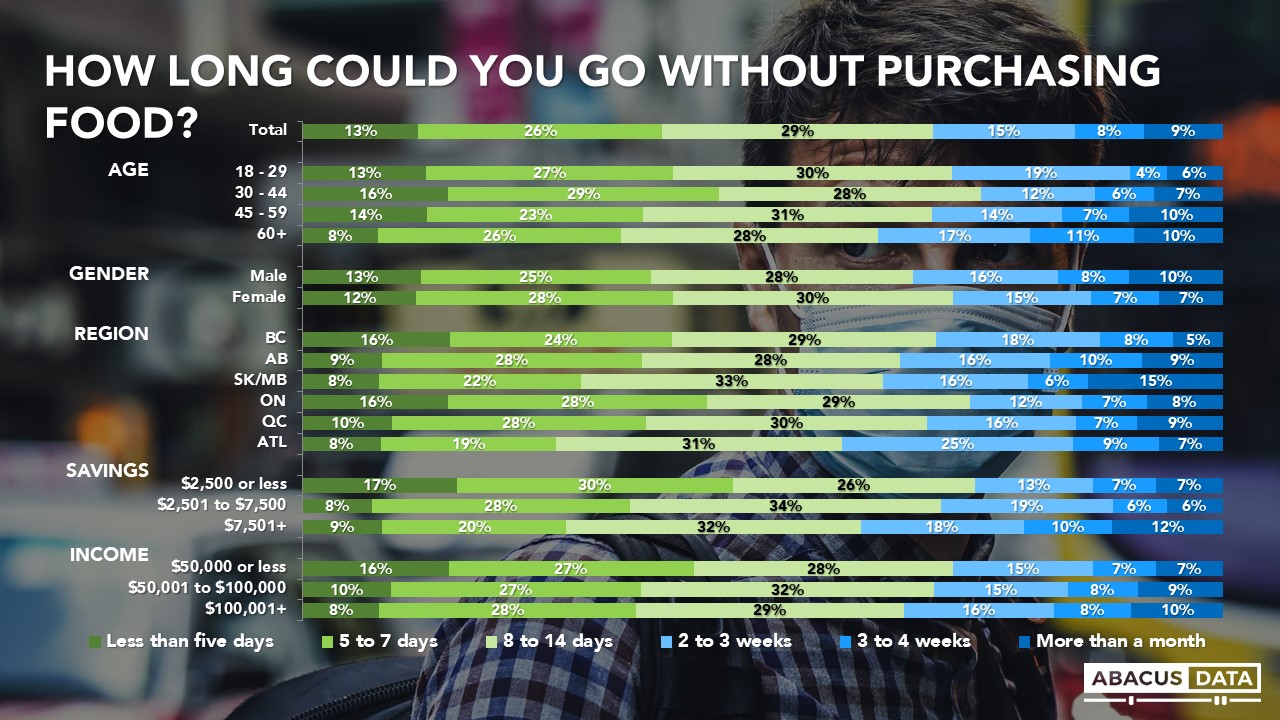
THE UPSHOT
With government and public health officials signalling the increasing severity of COVID-19, Canadians are certainly concerned and unsure of how to handle the day to day provisions of their lives under these uncertain circumstances. Supply issues covered by the news and showing up in our social feeds (think toiler paper and hand sanitizer) likely add fuel to the fire of already changing behaviour. While few consumers look like they’re stockpiling for the long-long term, many are feeling anxious and believe they should be, ultimately concerned about the availability of basic goods they’ll need to outlive a public health crisis of this magnitude.
If the crisis worsens over time, concerns about food security and the supply chain are likely to increase. We will continue to monitor it.
METHODOLOGY
Our survey was conducted online with 2,309 Canadians aged 18 and over from March 20 to 24, 2020. A random sample of panellists was invited to complete the survey from a set of partner panels based on the Lucid exchange platform. These partners are double opt-in survey panels, blended to manage out potential skews in the data from a single source.
The margin of error for a comparable probability-based random sample of the same size is +/- 2.1%, 19 times out of 20. The data were weighted according to census data to ensure that the sample matched Canada’s population according to age, gender, educational attainment, and region. Totals may not add up to 100 due to rounding.
ABOUT ABACUS DATA
We are the only research and strategy firm that helps organizations respond to the disruptive risks and opportunities in a world where demographics and technology are changing more quickly than ever.
We are an innovative, fast-growing public opinion and marketing research consultancy. We use the latest technology, sound science, and deep experience to generate top-flight research-based advice to our clients. We offer global research capacity with a strong focus on customer service, attention to detail and exceptional value.
We were one of the most accurate pollsters conducting research during the 2019 Canadian Election.

Contact us with any questions.
Find out more about how we can help your organization by downloading our corporate profile and service offering.



